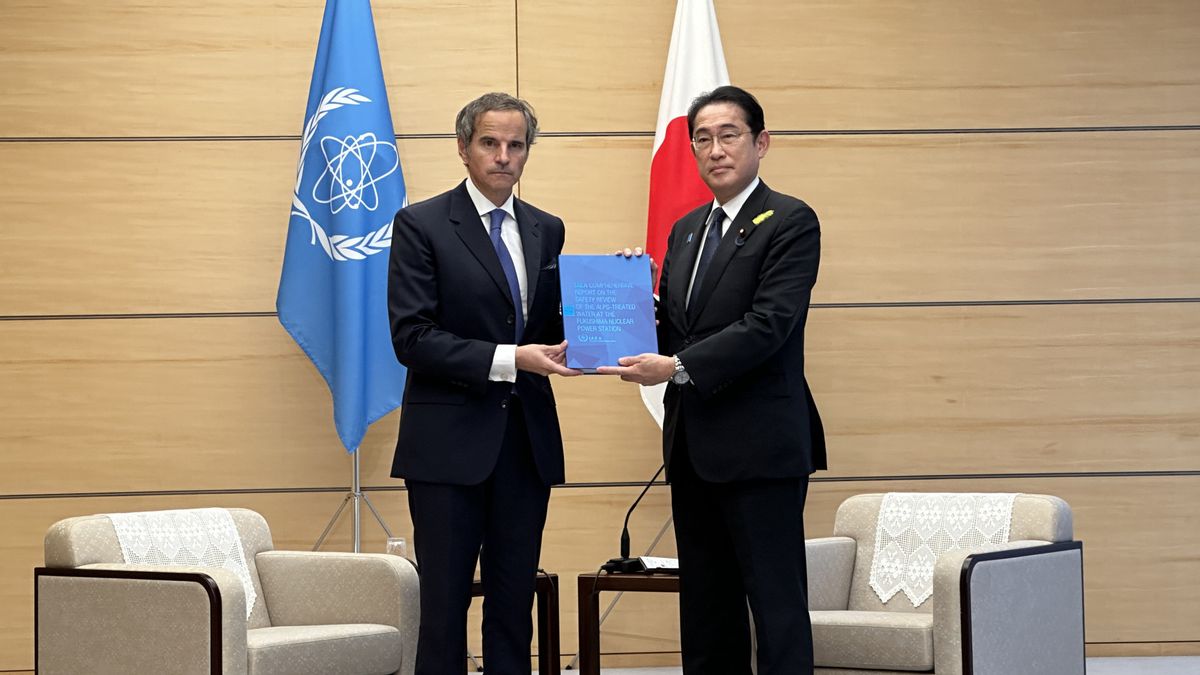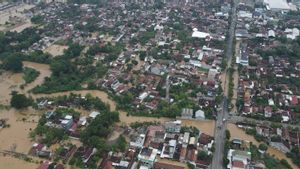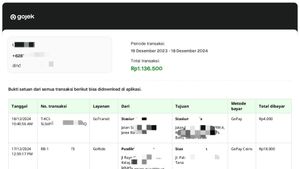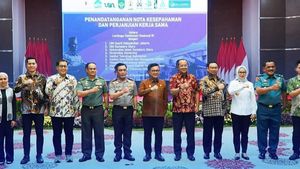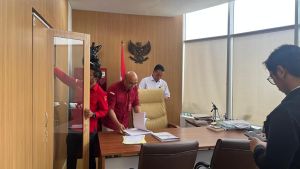JAKARTA - The International Atomic Energy Agency (IAEA) on Tuesday provided assurance about the safety of Japan's plan to release treated radioactive wastewater from the Fukushima nuclear power plant into the open sea, amid concerns from China and other neighbors.
In a report presented by IAEA Director General Rafael Grossi to Prime Minister Fumio Kishida in Tokyo, the UN nuclear watchdog concluded the Fukushima nuclear plant's water discharge plan is "consistent" with international safety standards, with "negligible radiological impact on humans and the environment."
In his meeting with Prime Minister Kishida, Grossi said the two-year IAEA review was "dedicated, scientific and impartial", with the result that Japan had all the necessary elements to proceed to the next phase.
Meanwhile, PM Kishida said Japan would respond "sincerely" to the review and would continue to explain its plans to affected citizens and the international community "with a high degree of transparency."
"We will not allow disposal that is harmful to human health and the environment," said PM Kishida, citing Kyodo News, July 5.
In that regard, the Government of Japan plans to study the IAEA's assessment, before making a firm decision on the commencement time of the release which is planned around the summer.
Grossi himself stressed in the IAEA report his document is not a recommendation or endorsement of water discharge, with the Government of Japan having the final say on the matter while committing to continuing safety reviews over the 30-year discharge phase.
It is known, the Japanese government announced in April 2021 plans to begin releasing radioactive wastewater from the damaged Fukushima nuclear power plant on the east coast of Japan into the Pacific Ocean, as quoted by the Korea Times.
Today I have given Japanese Prime Minister Fumio Kishida @kishida230 the IAEA report findings of the @IAEAorg’s independent, safety review of #Japan’s plan to release treated water from the #Fukushima Daiichi plant into the sea.
📝 https://t.co/ZiQ6fYFHBw (1/4) pic.twitter.com/IuUgsBcH2d
— Rafael MarianoGrossi (@rafaelmgrossi) July 4, 2023
The plan has drawn strong objections, not only from neighboring countries, but also from local residents and fishermen in Japan.
The Tokyo government says the release of radioactive wastewater is necessary to deactivate the crippled reactor at the Fukushima Daiichi nuclear power plant, which was destroyed by the March 2011 earthquake and tsunami.
Large quantities of contaminated water have been generated in the process of cooling melted reactor fuel. The water is stored in more than 1,000 tanks installed on site, after going through a state-of-the-art liquid processing system that removes most of the radionuclides except tritium, but the containers are near capacity.
The water will be diluted with seawater to 1/40 of the concentration permitted by Japanese safety standards, before being released through an underwater tunnel 1 kilometer from the power plant.
Tritium is known to be less harmful to the human body than other radioactive materials, such as cesium and strontium, because it emits very weak radiation and does not accumulate or concentrate in the body.
اقرأ أيضا:
Meanwhile, nuclear power plants around the world routinely release treated water containing low concentrations of tritium and other radionuclides into the environment as part of normal operations, according to the UN agency.
Separately, the South Korean government has taken a cautious stance on Japan's plans to release radioactive wastewater, amid public concern about how the discharged water could affect public health and the marine environment.
Meanwhile, China's Foreign Ministry criticized the IAEA's security review, saying it "should not be a 'shield' or a 'green light' for Japan's disposal of nuclear-contaminated water into the sea," adding the report "failed to fully reflect the views of experts who participate in the review."
The English, Chinese, Japanese, Arabic, and French versions are automatically generated by the AI. So there may still be inaccuracies in translating, please always see Indonesian as our main language. (system supported by DigitalSiber.id)
